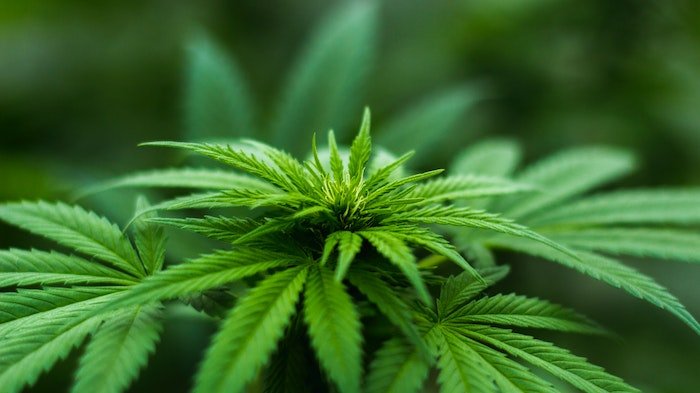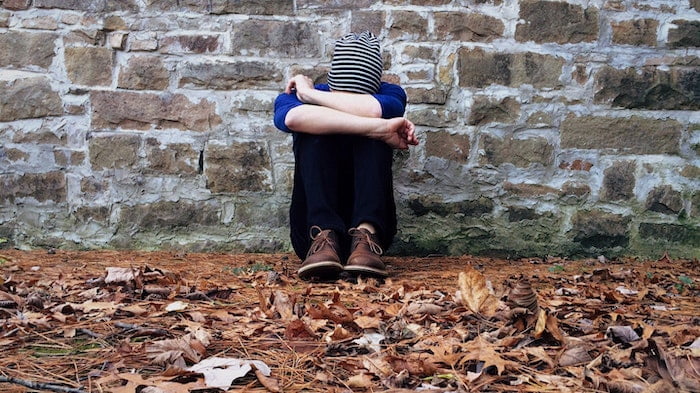Cannabis Detox: How to Detox from Weed & How Long Will It Take?
Cannabis is a psychoactive drug. This means that cannabis is known to have various mind-altering effects.
Drug Group
Most illegal substances are classified as opioids, stimulants, depressants, or hallucinogenic drugs:
- Opioids are drugs that have painkilling properties. [1]
- Stimulants are drugs that make the messages that travel between the brain and the body move faster than normal. [2]
- Depressants are drugs that make the messages that travel between the brain and the body move slower than normal. [3]
- Hallucinogens are drugs that change the way that people think, feel, and perceive what is happening around them. [4]
Cannabis is known as psychoactive, as it can have stimulant, depressant and hallucinogenic effects on the user. [5]
Drug Classification
In the UK, cannabis is a class B drug.
This means that under the 1971 Misuse of Drugs Act, the use, possession, selling and production of cannabis all count as illegal activities in the eyes of UK law.
If you are convicted of possessing cannabis you may potentially face a fine of up to £2,500 or a sentence of up to five years in prison.
If you are convicted of making or selling cannabis, you may potentially face a sentence of up to 14 years in prison. [6]
What Other Names is Cannabis Known By?

Cannabis is known by many different names.
The most common are potentially marijuana and weed, however, the drug is also known by a long list of street names.
These include:
What Is Cannabis Made From?

Cannabis is a form of drug that is made from the plant matter of the Cannabis Sativa or Cannabis Indica, otherwise known as the cannabis plant.
Cannabis has a very complicated chemical structure. This means that there are many different entities that exist inside cannabis itself.
The two main cannabinoids (chemical compounds) in cannabis are cannabidiol (CBD) and tetrahydrocannabinol (THC).
It is possible to separate the two compounds from one another.
THC has been identified as the main psychoactive compound in cannabis. This means that it is THC that causes the stimulant, depressant and hallucinogenic effects on the user. [8]
CBD is less chemically understood. Some research has shown that CBD is a more ‘mild’ compound as it is not associated with producing mind-altering effects like THC.
Some people believe that CBD has positive medical applications for treating issues with sleep, anxiety, and certain pain conditions.
For this reason, it is possible to purchase CBD products legally, as these should not produce any feelings associated with the high of traditional cannabis use. [9]
How Is Cannabis Used?

Cannabis can be taken in several different ways.
The main ways of using cannabis are through smoking or inhaling, or through ingestion.
Smoking Cannabis
Smoking is perhaps the most common method of using cannabis.
There are several different ways to smoke cannabis. These include:
- smoking ‘joints’ (cigarette-style, rolled paper with cannabis inside)
- smoking ‘blunts’ (empty cigarettes or cigars that have been filled with cannabis)
- smoking via a ‘bong’ (using a contraption similar to a pipe to aid inhalation)
- smoking via a vaporiser (using liquid cannabis and inhaling vapour to avoid the presence of smoke) [10]
Ingesting Cannabis
Cannabis can also be ingested.
Common ways of ingesting cannabis include:
- the use of ‘edibles’ (adding cannabis to food, especially baked goods)
- the use of brewing (adding cannabis to water and drinking) [11]
What are the Effects of Cannabis?

As a psychoactive drug, the ‘high’ felt by cannabis users are short-term effects on the brain. However, frequent users, or heavy users, may find that there start to be lasting psychological impacts associated with their use.
How Does Cannabis Affect the Brain?
Short-Term Effects on the Brain:
- feeling relaxed, calm, or ‘mellow’
- feeling amused and excited
- an increased urge to talk, be around people, and generally socialise
- short-term feelings of paranoia
- short term feelings of anxiety
- short term experiences of psychotic episodes
- impaired movement
- changeable moods
- heightened senses
- feeling as though things have slowed down, or sped up
- hallucinations
- delusions [12]
Long-term Effects on the Brain:
- addiction
- impaired brain development [13]
- difficulty sleeping
- increased tendency towards anxiety
- increased tendency towards depression
- increased tendency towards suicidal thoughts [14]
How Does Cannabis Affect the Body?
Short-Term Effects on the Body:
- increased dryness in the mouth
- the increased appetite (sometimes known as ‘the munchies’)
- increased heart rate
- difficulty with memory
- slower, less accurate reflexes
- red, sore, or bloodshot eyes
- sore throat [15]
Long-Term Effects on the Body:
- respiratory issues, such as bronchitis
- respiratory diseases, such as asthma
- cannabinoid hyperemesis syndrome (intense sickness and dehydration) [16]
How Do I Know if I’m Addicted?

Addiction is a complicated entity – it is known as a chronic condition, as it is something that can make an impact on all aspects of our lives.
Every individual’s experience of addiction will be unique to them. But, if you believe you or a loved one’s relationship to substances may be spiralling from recreational use to addiction, there are some signs you can look for.
Common signs of addiction include:
- Worsened physical health (feeling tired and run down, increased or decreased appetite, unexplained pain, etc)
- Worsened mental health (feeling overly stressed, low, anxious or angry etc)
- Less able to maintain positive relationships (feelings of loneliness and paranoia)
- Less able to carry out work-related tasks (missing deadlines, conflict with management)
- Less able to carry out school-related tasks (missing deadlines, conflict with teachers or peers)
- Less able to manage household tasks (finding the home is messier than usual, forgetting to complete chores or make meals)
- Less able to manage finances and spending (missing rent, mortgage or bill payments, an increased need to borrow money from family, friends or loan companies) [17]
How Common Is Cannabis Use?

A study from the Office of National Statistics notes that cannabis has been the most commonly used drug in the UK for a number of years.
The research found that 18.7% (just under a fifth) of 16-24 year-olds and 7.8% of adults aged 24-59 have used cannabis in the last year (2020-2021). [18]
The government’s annual report for the Office for Health Improvement and Disparities found that there was a 5% increase in the number of adults beginning treatment for cannabis use from 25,944 adults in 2019 to 27,304 adults in 2020). [19]
What is Cannabis Addiction?

Addictions to substances can either be physical or psychological or in some instances, they can be both.
Research into cannabis use suggests that whilst frequent use of cannabis may itself cause physical symptoms, there is little evidence to suggest that cannabis is physically addictive.
This suggests that cannabis is psychologically addictive.
For this reason, cannabis addiction is sometimes known as cannabis dependency or as a cannabis use disorder.
While dependent cannabis smokers, may not be physically dependent on the drug, it is possible to become addicted to the psychological side effects that cannabis can cause.
In that sense, it is possible to get addicted to the feelings that cannabis can cause: feelings of relaxation, euphoria, calmness and excitement. [20]
Addiction happens when our bodies and minds get used to the physical and psychological effects of a substance.
This means that to achieve the same positive feelings or ‘high’, more substance is needed.
This can mean that over a sense of time, users may feel that they need to use more often, at a higher quantity or frequency in order to meet the increased cannabis cravings. This is often how individuals become daily smokers.
Treating A Cannabis Addiction

All forms of addiction treatment usually function in a similar way.
Typically, addiction treatment will happen in three stages:
Assessment
An assessment is a meeting between an individual and a medical professional to speak about an individual’s experience with substances.
In this context, you will be asked to discuss your cannabis use history.
This may include talking about any psychological symptoms you may have, your experience with mental health, and general lifestyle questions. [21]
This conversation is designed to learn as much about your situation as possible, to ensure that the next stages of your treatment are designed with you in mind.
During this process, you may be asked some questions that feel personal or uncomfortable to answer. It is important to remember that the medical professional is there to help you in a non-judgemental capacity.
Detox
A detox (or detoxification) is the process where your body adjusts to functioning without the presence of a substance.
During the detox process, it is not uncommon to experience symptoms of withdrawal.
When our body gets used to the presence of something, it often takes some time to get used to it no longer being there. This adjustment period during detox is often accompanied by physical and psychological signs of withdrawal. [22]
A detox is overseen by medical professionals to ensure your safety and to monitor potential withdrawal symptoms and your general well-being.
Cannabis Withdrawal Syndrome

One of the primary complications of detoxing from cannabis is cannabis withdrawal syndrome.
Cannabis withdrawal syndrome (otherwise known as CWS) refers to a specific set of symptoms experienced when individuals cease to use cannabis.
Research has shown that abstinence from cannabis can cause what appears to be a set of cannabis withdrawal symptoms. These are part of what is known as a ‘Marijuana Withdrawal Checklist’ (or MWC). [23]
Physical Symptoms of Cannabis Withdrawal:
- feeling physically weak
- increased sweating
- cannabis cravings
- shaking
- headaches
- pain in the stomach
Psychological Symptoms of Cannabis Withdrawal:
- difficulty sleeping
- increased anxiety or feeling nervous
- increased tendency towards aggression or anger
- changeable moods
- strange or unusual dreams
- low mood
- a low appetite that can lead to weight loss
How Long Does it Take to Detox from Cannabis?

The period of time it takes to detox from a drug will depend on the individual themselves.
The length of time that a substance stays in the body depends on various different factors.
These include:
- metabolic rate (how fast your body can break down substances)
- your size (height and body mass)
- your age
- your health
- the frequency of use (if you are a heavy user or an infrequent user)
- the strength of the drug
- what you have taken the drug with (other drugs, alcohol, etc.)
Research into cannabis withdrawal syndrome suggests that some of the neurochemical effects of using cannabis start to reverse after 2 days of non-use. After four weeks of abstinence, functioning can return to normal. [24]
For some people, it can be very helpful to be admitted to an inpatient rehab programme whilst they are beginning to wean themselves from cannabis.
This is because there is less risk of relapse in a more secure and supported environment.
However, as there are relatively few complications with stopping cannabis use in comparison with the detox process of some other drugs, it is possible to start your recovery journey through an outpatient form of treatment.
Psychological Interventions for Cannabis Addiction

If you are feeling concerned that you or a loved one are struggling with cannabis dependency, chronic use or addiction, there are forms of specialised support for you to access.
Therapeutic treatment is an essential component of all addiction recovery programmes, as it allows you time to reflect on yourself and your feelings.
Drug abuse, including cannabis dependency, can sometimes occur as a result of personal struggles in our lives. They can also occur as a way of self-medicating and dealing with difficult feelings.
Engaging with therapy will also allow you to think about the effects that your cannabis use may have had on yourself and others. This reflection has been shown to lower the probability of relapsing or returning to use a substance. [25]
There is a form of psychological help out there for everyone.
Some of the different kinds of addiction treatment for cannabis use can include:
- Acceptance and Commitment Therapy
- Brief Interventions
- Cannabis Rehab
- Co-dependency Treatment
- Cognitive Behavioural Therapy (CBT)
- Contingency management
- Counselling
- Detoxing from substances
- Dialectical Behavioural Therapy (DBT)
- Family Therapy
- Group Therapy
- Holistic Therapy/ Alternative Therapy (Art Therapy, Music Therapy, Equine Therapy, etc).
- Individual Therapy (1-1 Therapy)
- Motivational Enhancement
- Motivational Interviewing
- Psychotherapy
- Twelve-Step Facilitation Treatment (TSF)
- Therapeutic communities or self-help groups
Ready to Access Help?
Addiction can be a very isolating experience. It can begin as something that feels manageable but can quickly start to consume our lives.
If you are ready to access support for your use of cannabis, you can contact Rehab Recovery at 0800 088 66 86 or use the online form to request a call back from a member of our specialist team about accessing support at a local cannabis rehab centre.
If you are uncomfortable with speaking over the phone, you can use our free chat service at any time of day, to speak with a professional virtually.
References
[1] https://nida.nih.gov/research-topics/opioids
[2] https://adf.org.au/drug-facts/stimulants/
[3] https://adf.org.au/drug-facts/stimulants/
[4] https://adf.org.au/drug-facts/stimulants/
[5] https://adf.org.au/drug-facts/cannabis/
[7] https://www.police.nsw.gov.au/__data/assets/file/0007/2410/Cannabis.pdf
[8] https://www.ncbi.nlm.nih.gov/pmc/articles/PMC3736954/
[9] https://www.ncbi.nlm.nih.gov/pmc/articles/PMC6326553/
[10] https://nida.nih.gov/publications/drugfacts/cannabis-marijuana#mjextracts
[11] https://pubmed.ncbi.nlm.nih.gov/33555188/
[12] https://adf.org.au/drug-facts/cannabis/
[13] https://www.ncbi.nlm.nih.gov/pmc/articles/PMC3930618/
[14] https://www.ncbi.nlm.nih.gov/pmc/articles/PMC1124674/
[15] https://nida.nih.gov/publications/drugfacts/cannabis-marijuana#mjextracts
[16] https://www.bmj.com/content/366/bmj.l4336
[17] https://nida.nih.gov/publications/drugs-brains-behavior-science-addiction/drug-misuse-addiction
[20] https://www.ncbi.nlm.nih.gov/pmc/articles/PMC2797098/
[21] https://cde.drugabuse.gov/instrument/e9053390-ee9c-9140-e040-bb89ad433d69
[22] https://www.ncbi.nlm.nih.gov/pmc/articles/PMC4014033/




